In the Mediterranean Europe Is Facing Tony Blair's Dilemma
Adelina Marini, April 23, 2015
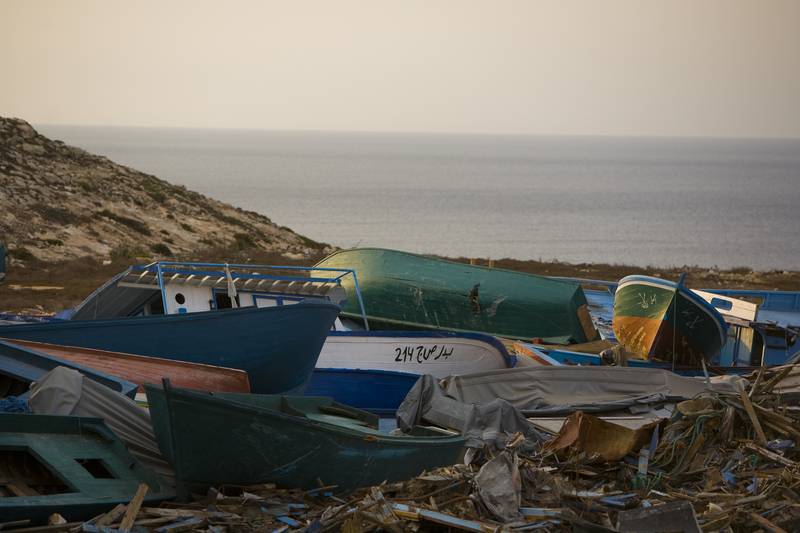 The leaders of the EU member states have gathered in Brussels today for an extraordinary summit to try and find a common solution to the problem with the thousands of tragic deaths of migrants and refugees in the Mediterranean. An occasion for the summit is the latest tragic incident last weekend when almost 800 people drowned in an attempt to escape from the wars and chaos in Africa and the Middle East and in a search for better life in Europe. Somewhat unnoticeably, however, five years after the beginning of the Arab spring Europe has found itself facing Tony Blair's dilemma.
The leaders of the EU member states have gathered in Brussels today for an extraordinary summit to try and find a common solution to the problem with the thousands of tragic deaths of migrants and refugees in the Mediterranean. An occasion for the summit is the latest tragic incident last weekend when almost 800 people drowned in an attempt to escape from the wars and chaos in Africa and the Middle East and in a search for better life in Europe. Somewhat unnoticeably, however, five years after the beginning of the Arab spring Europe has found itself facing Tony Blair's dilemma.
One of the main focuses of the autobiography "A Journey" of the former British prime minister is his decision in 2003 Britain to join the coalition of the willing to topple Saddam Hussein from power. And although he is still defending his decision as right, Tony Blair, who was a prime minister of UK for 10 years, admits in his book that he did not expect what a nightmare the falling of Saddam Hussein would unleash. Moreover, he says that he underestimated the role of Al Qaeda and Iran in destabilising the country which is unable to recover and the coalition of the willing is gradually withdrawing even from its civil missions. In his book, Mr Blair describes in much detail all the aspects he took under consideration before taking the decision as his main thesis is that despite the sectarian wars, the lack of a state, the poverty and chaos, the world is still a better place without a dictator like Saddam.
Iraq is one of the most painful lessons from the destruction of dictatorships. When there is a monocracy, practically, there is no state. Everything depends on the dictator's will. Decades are needed and huge efforts, often involving external help, so that the state can be rebuild. In some cases, where there is some history of state culture, this is successful, whereas in other countries the attempts constantly fail and new and new problems emerge which the developed world proves not only unprepared for but also unpleasantly surprised. And the problem is not just logistical - there are no institutions, so let's build some. The problem often is cultural and part of that are also strong religious trends.
Europe has many examples around it. On Friday, two days before the incident several tens of miles off the Libyan shore, Italy Prime Minister Matteo Renzi says in an interview [на английски език] with The Washington Post something which shows that Tony Blair's dilemma has already reached the minds of some European politicians. "If you decide to remove a dictator — and he [he talks about Muammar Qaddafi] was a terrible dictator — you must think about, step by step, what institutional structures will remain". During the Arab spring we often criticised Europe and the developed world at large for supporting dictatorships and for striking lucrative deals with dictators. This can be heard even today in relation to Vladimir Putin and the trade connections of his regime with the most influential EU member states. The accusation most often is that with such deals the EU is selling off its own values.
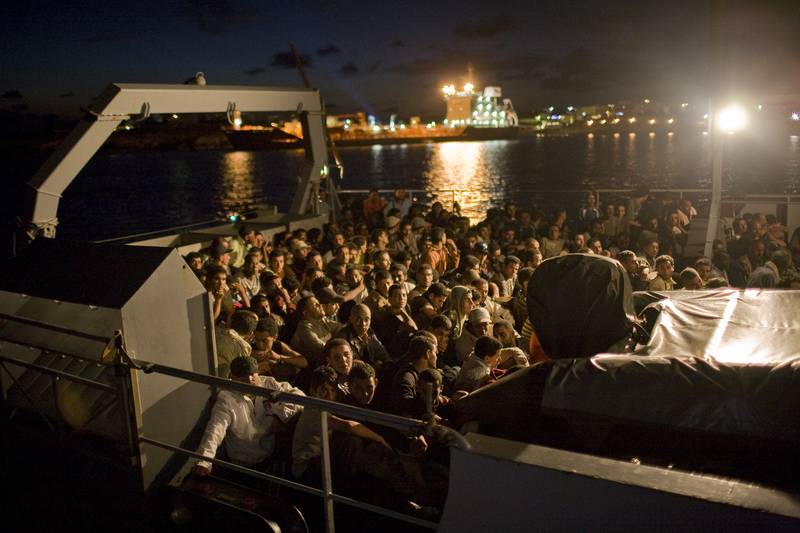 The European leaders are right when they say that there is no simple nor a painless solution to the problem that causes the flow of migrants and refugees to Europe to be constantly growing from all sides but mainly through the Mediterranean and Turkey. It is very important, however, when the best possible solution is sought to make an accurate diagnosis before that. And it is that what is happening in the Med and its root causes is a result of the lack of a common foreign policy of the EU. The Union has worked with the countries in its closest neighbourhood through its relatively young European Neighbourhood Policy (ENP) which is currently being reviewed and in June it has to be decided whether and how it should be changed. It consisted, generally, of financial aid for non-governmental organisations and to sow the seeds of democracy. After the Arab spring, this policy seems completely failed but it can be looked upon from another angle by allowing that it might have also contributed to the awakening of the desire to tear apart with tyranny.
The European leaders are right when they say that there is no simple nor a painless solution to the problem that causes the flow of migrants and refugees to Europe to be constantly growing from all sides but mainly through the Mediterranean and Turkey. It is very important, however, when the best possible solution is sought to make an accurate diagnosis before that. And it is that what is happening in the Med and its root causes is a result of the lack of a common foreign policy of the EU. The Union has worked with the countries in its closest neighbourhood through its relatively young European Neighbourhood Policy (ENP) which is currently being reviewed and in June it has to be decided whether and how it should be changed. It consisted, generally, of financial aid for non-governmental organisations and to sow the seeds of democracy. After the Arab spring, this policy seems completely failed but it can be looked upon from another angle by allowing that it might have also contributed to the awakening of the desire to tear apart with tyranny.
The problem is, however, that no matter which is right the EU has failed to be united in its analysis and approach to the consequences. And this is precisely what Matteo Renzi is criticising in his interview with The Washington Post recalling that France's unilateral action, started by ex-president Nicola Sarkozy, and Qatar's role to topple Qaddafi, have left a humanitarian crisis behind. In fact, it was precisely that hasty decision of a single member state, joined afterwards by others but without a common EU decision, that is the main problem. Very often such unilateral decisions are provoked by the need to address specific domestic issues. However the consequences are endured by others. That is why, it is very important to put an end to such practises.
The eurozone crisis has revealed that unilateral actions in an environment of deep interconnectedness of the economies in the currency club are harmful and irresponsible to others. This is the reason why in the past five years a huge step was made toward deepening of the integration in the euro area. Obviously, the time is ripe for a similar step in terms of foreign policy. The actions of a member state, guided by a narrow national interest or, worse, by competition with populists, often have consequences that go beyond the real national interest of a country. Which is why, when conflicts are concerned, the national interest should not be the guiding star but the common European interest, at least because the national interest is in danger every time when the common European interest is in danger.
The difference between the euro area crisis and the crisis in the Med, however, is measured in human lives. The economic and financial crisis led to a massive impoverishment and high unemployment. The lack of common foreign policy leads to a huge leap of the number of people who died on their way to security and perspectives. That is why, it is urgent the EU to stop feeding the ego of populists by succumbing to their false claims about a national sovereignty taken away. National sovereignty will be much better protected through the joint efforts of the 28 member states. And as facts show, national sovereignty mainly suffers from the lack of common European solutions, especially in the most affected by the migrant flows countries - those at the front lines - Malta, Greece and Italy - and those that are the most preferred destination for settlement - Germany and Sweden. The assessments of experts show that only in the first months of 2015 the number of deaths surpasses the entire 2014.
Today's summit should be used to mark the beginning of an overall reconsideration of the dominant practises. The leaders of the member states should agree to stop undertaking unilateral foreign policy actions without having consulted in advance with the rest about the possible consequences and how to address them. This should not happen also without communication with the crucial international organisations and the leading foreign policy partners of the EU. In March, the foreign affairs ministers discussed the problem of migration for the first time in ten years, as if during those ten years there were no tides of refugees and migrants. EU is boasting that it is the biggest donor of humanitarian assistance. I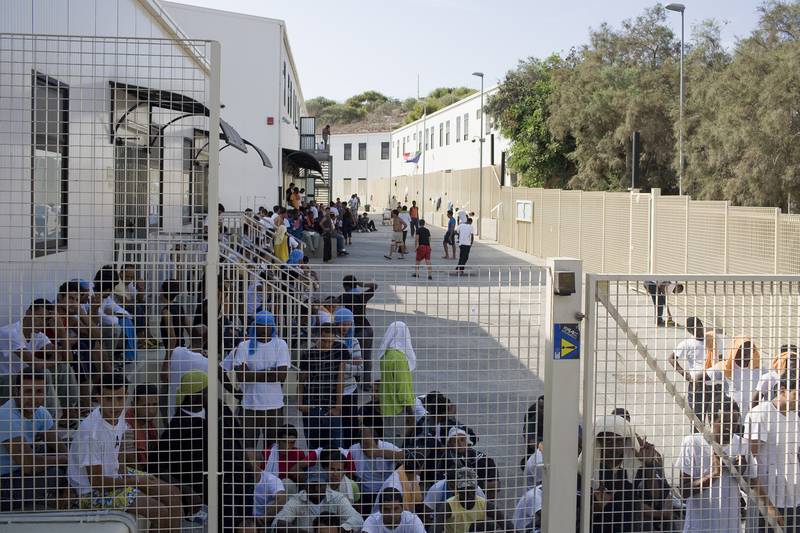 t is obvious that this has not delivered the desired foreign policy results. Either the money is not enough or it is not spent in an appropriate way.
t is obvious that this has not delivered the desired foreign policy results. Either the money is not enough or it is not spent in an appropriate way.
The leaders are expected today to agree on the need to enhance the diplomatic efforts to root out the problems that lead to migration - conflicts, poverty and human rights violations. This is a good time to discuss uniting efforts and more unity in the decision-making process. Otherwise, more deaths will come on Europe's account and its foreign policy fragmentation. Tony Blair's dilemma is deep and difficult. It cannot be answered in a single summit. It needs in-depth and broad debates involving the Union's global partners. But still, the guiding thing in Blair's dilemma is that he is deeply convinced that dictatorships are something bad. This entirely coincides with the European system of values. What the Union needs to do is to find the right approach.
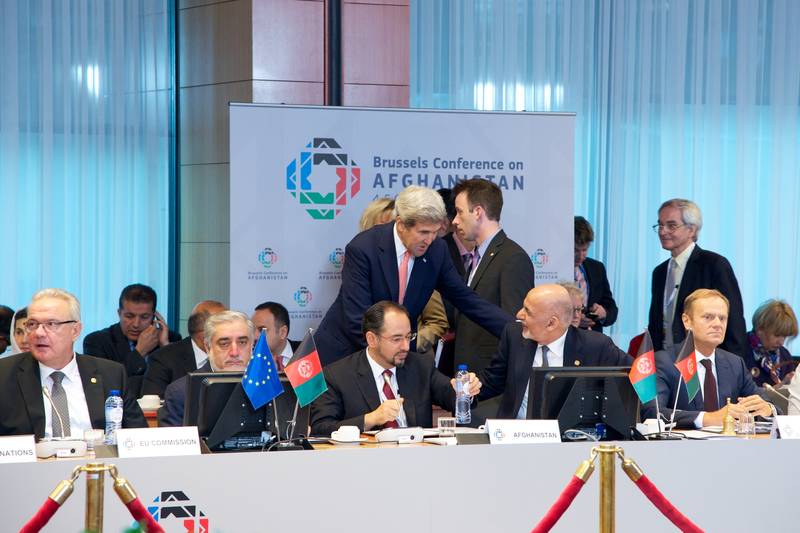 | © Council of the EU
| © Council of the EU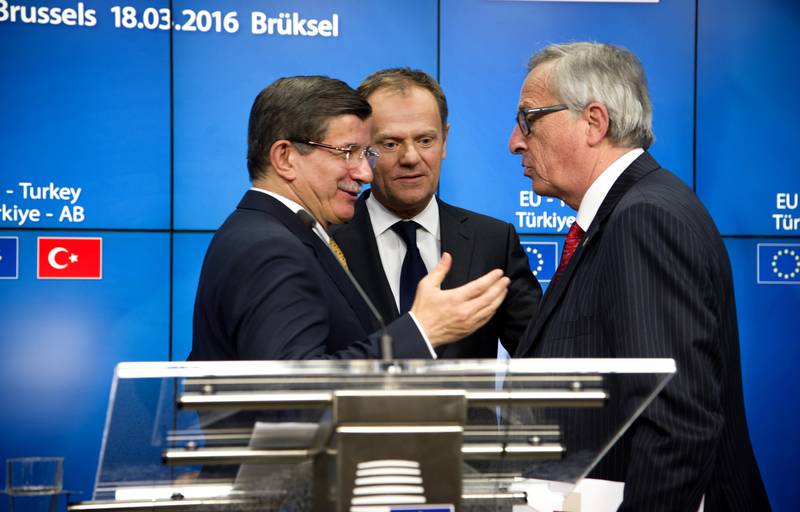 Davutoglu, Tusk, Juncker | © Council of the EU
Davutoglu, Tusk, Juncker | © Council of the EU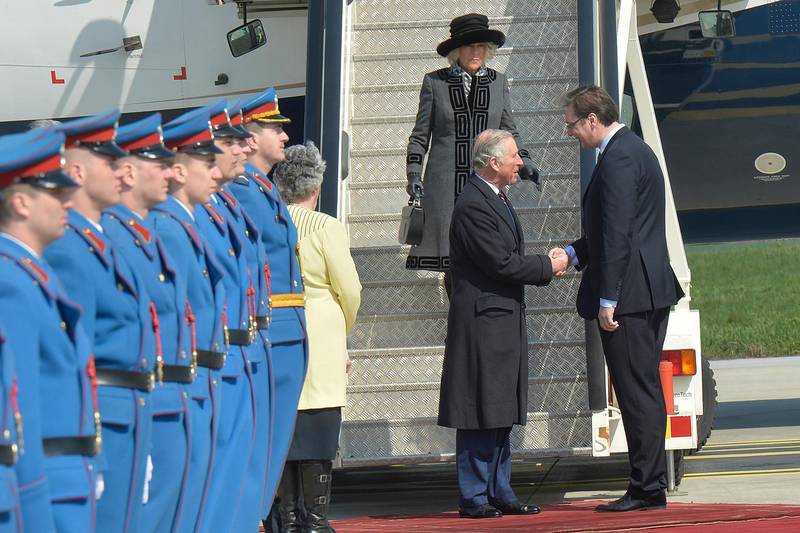 | © Vlada RS
| © Vlada RS